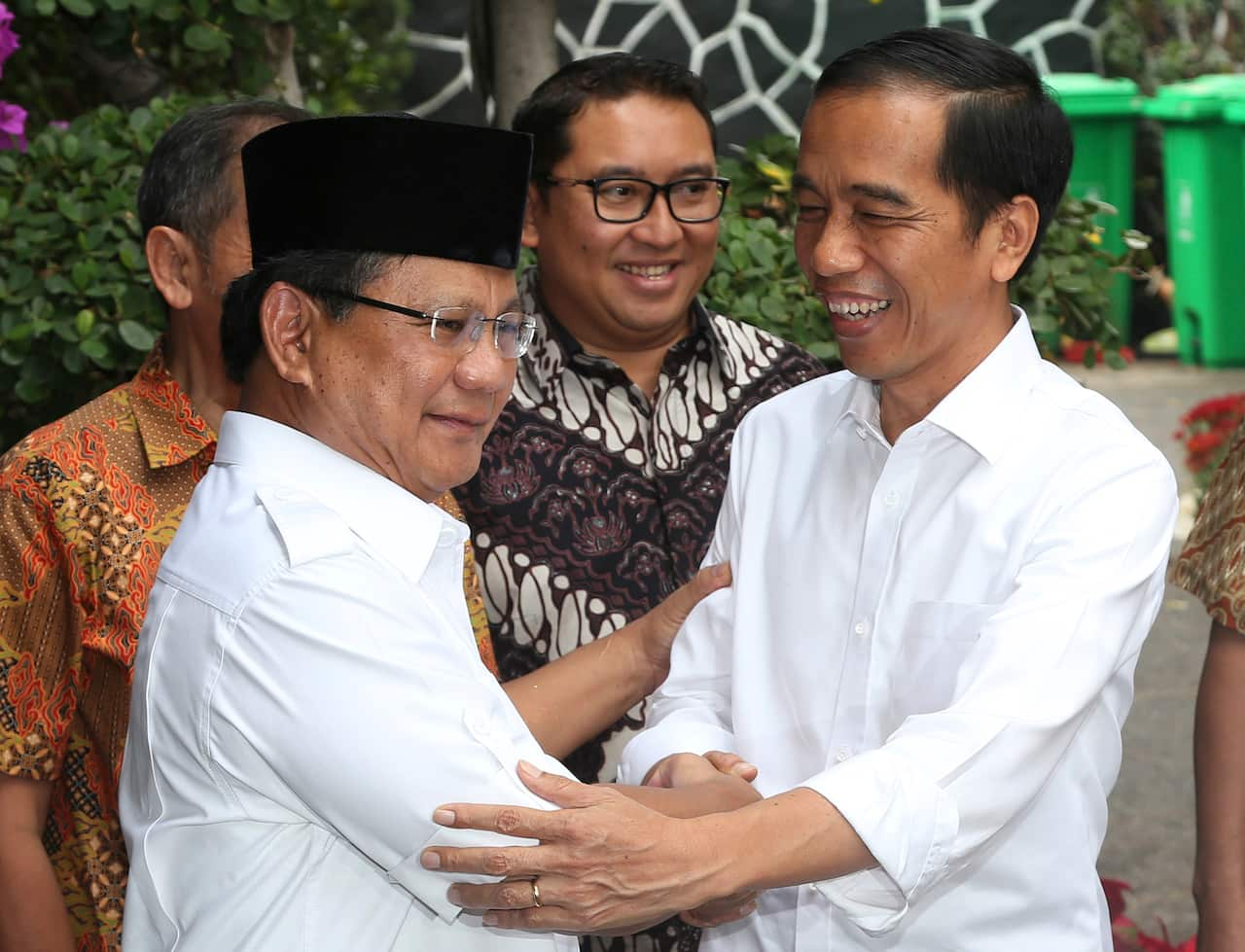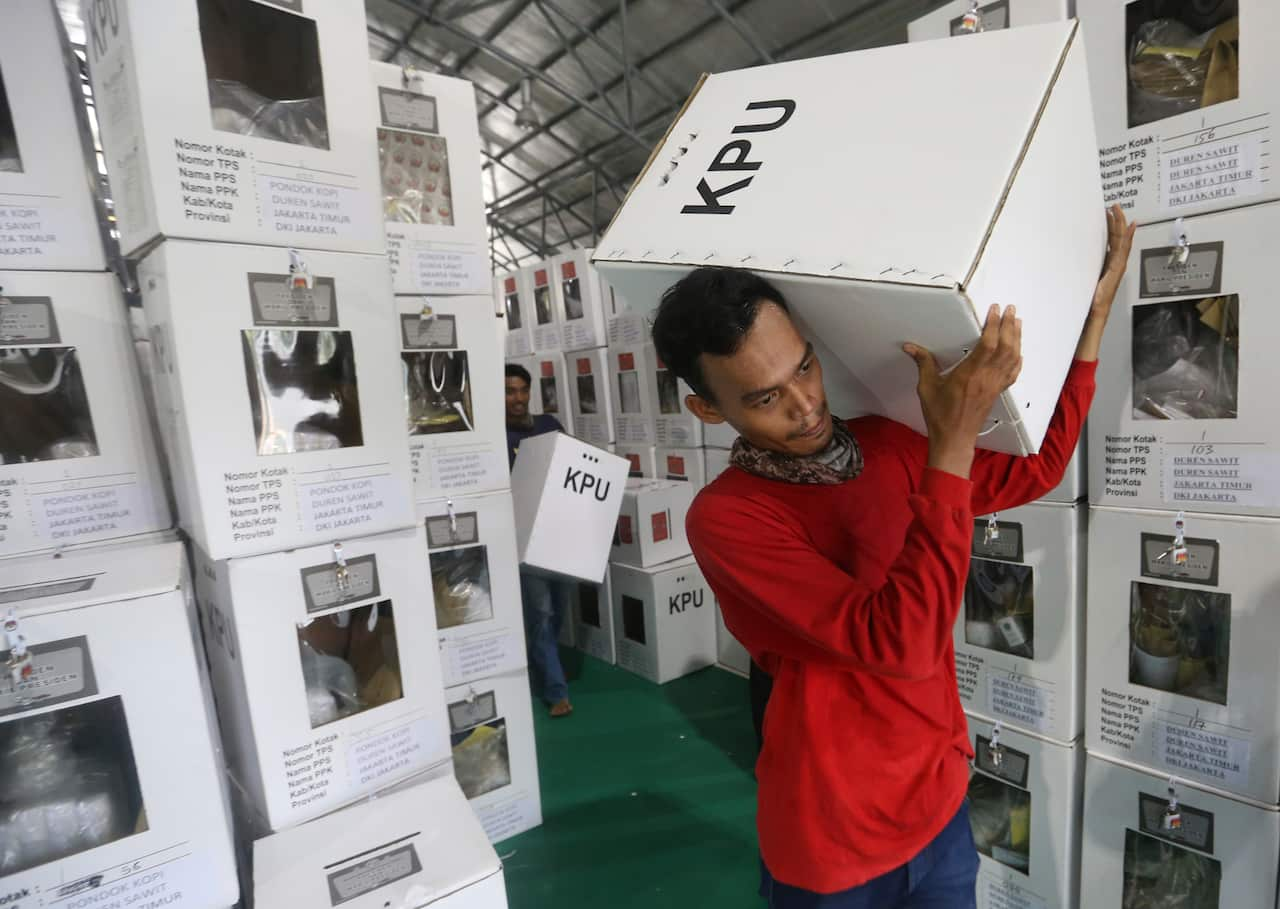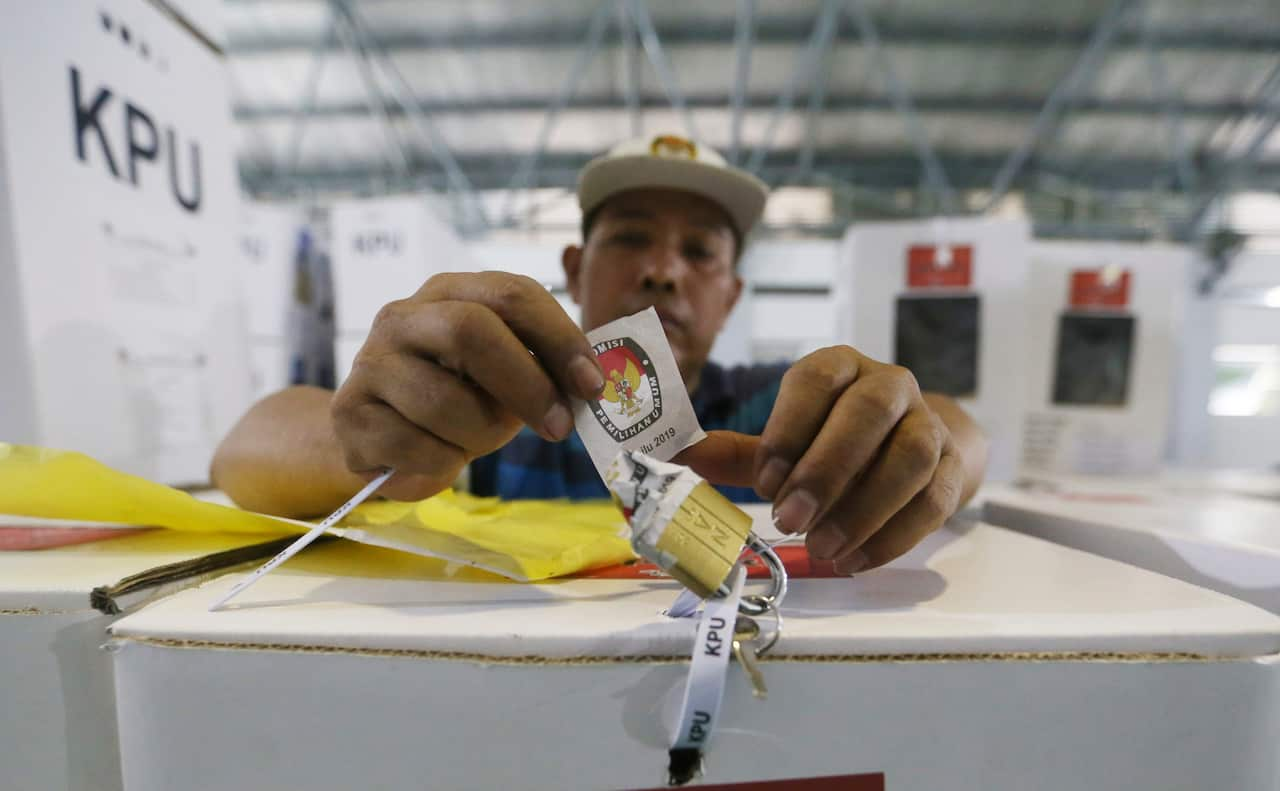Indonesia's Joko Widodo was on track to be re-elected as president of the world's third-biggest democracy on Wednesday with pollsters giving him a wide lead over rival Prabowo Subianto, an ex-general.
Based on data collected at polling stations, Saiful Mujani Research Centre, Indo Barometer and Indikator Politik Indonesia said Widodo was holding a strong lead, although official results are not due until next month.
The Saiful Mujani Research Centre said its "quick count" measure put Widodo at 55.34 per cent against his rival's 44.66 per cent, Indo Barometer said the vote was at 55.36 per cent to 44.64 per cent in Widodo's favour, while Indikator Politik Indonesia put the race at 55.97 per cent to 44.03 per cent.
More than 190 million Indonesians were eligible to cast a ballot from easternmost Papua to Sumatra at the other end of the volcano-dotted country, although some polling stations remained open due to delays and long queues.
A record 245,000 candidates are running for public office in the world's third-biggest democracy, from the presidency and parliamentary seats to local positions.
While Widodo, 57, is a clear favourite - he faced a tough challenge from main opponent Prabowo Subianto, 67, who had leaned on a fiery nationalist ticket and warned he will challenge the results over voter-list irregularities if he loses.
Subianto narrowly lost to Widodo in 2014 elections, and unsuccessfully challenged those results.
Voters flocked to more than 800,000 polling stations where they punched holes in ballots - to make clear their candidate choice - and then dip a finger in Muslim-approved halal ink, a measure to prevent double-voting in a graft-riddled country where ballot buying is rife.

The polls present a huge logistical challenge in a country stretching 4,800 kilometres across more than 17,000 islands, with a population of more than 260 million, including hundreds of ethnic groups and languages.
Officials moved cardboard ballot boxes by motorbikes, boats and planes - as well as elephants and horses - to reach mountaintop villages and communities deep in the jungle.
Official results are not expected until May.
'Indonesia First'
The poll has been punctuated by bitter mudslinging and a slew of fake news online that threatens to sway millions of undecided voters.
Widodo campaigned on his ambitious drive to build much-needed roads, airports and other infrastructure across Southeast Asia’s largest economy.
But his rights record has been criticised owing to an uptick in discriminatory attacks on religious and other minorities, including a small LGBTQI+ community, as Islamic hardliners become more vocal in public life.
His choice of conservative cleric Ma'ruf Amin as his running mate has also raised fears about the future of Indonesia's reputation for moderate Islam.
Raised in a bamboo shack in a riverside slum, the soft-spoken Widodo stands in stark contrast to Subianto, whose strongman image is underscored by a penchant for slamming lecterns as he accuses Jakarta of selling the country off to foreign interests.

Subianto - joined by running mate Sandiaga Uno, a 49-year-old wealthy financier - has courted Islamic hardliners, promised a boost to military and defence spending and, taking a page from US President Donald Trump, vowed to put "Indonesia first" by reviewing billions of dollars in Chinese investment.
Subianto's long-held presidential ambitions have been dogged by strong ties to the Suharto family and a chequered past.
He ordered the abduction of democracy activists as the authoritarian regime collapsed in 1998, and was accused of committing atrocities in East Timor.


